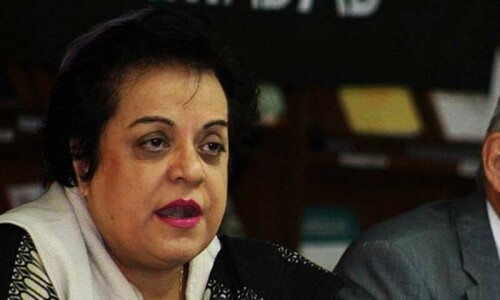
AS we celebrate the birth anniversary of Quaid-i-Azam Mohammad Ali Jinnah today, it is imperative to reflect on the state of the nation he envisioned and compare it to the Pakistan we live in today. The country that the Quaid had strived to create does not seem to exist in its true essence in the contemporary world.
Jinnah envisioned a Pakistan that would stand as a beacon of peace and moderation, setting an example for the rest of the world. He advocated for a state where people of all faiths and backgrounds could live harmoniously, and where justice and equality prevailed. However, it is disheartening to observe that the current state of affairs in Pakistan does not align with his noble vision.
The Quaid possessed a vision that transcended the boundaries of his time, and continues to serve as a guiding light for the nation. His vision for Pakistan was not merely the creation of a geographical entity, but the establishment of a homeland where justice, equality and prosperity would prevail.
Today, as we reflect on his vision, it becomes evident that his principles remain as relevant and essential as ever. The nation has failed to maintain the ideals of justice, equality and prosperity that Jinnah had envisioned. Political instability, corruption and a lack of effective governance have hindered the establishment of a truly democratic and inclusive society.
The vision of a just and fair society has been marred by social and economic disparities, and the rule of law has often been compromised.
At the core of Quaid’s vision was the idea of a democratic and inclusive society. His unwavering commitment to the principles of justice and fairness laid the foundation of a country where the rule of law would reign supreme, ensuring the protection of individual liberties and the promotion of across-the-board social harmony.
Jinnah emphasised the importance
of education and knowledge as the cornerstones of a progressive society. He believed that an educated populace was essential for the development and advancement of the nation.
His vision included the establishment of institutions that would foster intellectual growth and innovation, enabling Pakistan to compete on the global stage.
Pakistan has faced a number of significant challenges with respect to providing quality education to all its citizens. Issues, such as lack of resources, and unequal access to education have hindered the realisation of the founding father’s vision of an educated populace driving the nation’s progress.
He envisioned a Pakistan where economic opportunities would be abundant, and the fruits of develop-ment would be shared by all. However, today, Pakistan’s economy is facing significant challenges.
The nation has become heavily dependent on financial assistance from international lending organisations and friendly countries, resulting in a substantial burden of debt on the shoulders of its citizens.
Pakistan faces challenges in uphol- ding the principles of tolerance and pluralism, with instances of sectarian violence, discrimination against mino- rities, and a lack of genuine interfaith harmony tarnishing the vision of a harmonious and inclusive society.
As we deal with the challenges of today’s world, the Quaid’s ideas still show us the way forward for Pakistan. His belief in democracy, fairness, education, prosperity and getting along with each other is just as important now as it was when Pakistan was created.
As we honour his legacy, it is imperative that we remain steadfast in our pursuit of his vision, ensuring that Pakistan emerges as a beacon of hope and progress for generations to come.
It is critically important for us to rekindle the spirit of the Quaid’s vision and work towards realising Pakistan he had dreamt of.
We must strive to build a society where every individual is treated with dignity and respect, regardless of one’s social or economic background.
It is incumbent upon us, all of us, to uphold the principles of justice, equality and tolerance that were dear to our beloved Quaid.
Let us use this occasion to reflect on our national path and recommit ourselves to the ideals that Jinnah had stood for. Let us remember that it is only by embracing the man’s vision of a peaceful and moderate Pakistan that we can truly honour his legacy, and pave the way for a brighter future for our nation.
Sajid Ali Bangash
Gujranwala
Published in Dawn, December 25th, 2023













































Dear visitor, the comments section is undergoing an overhaul and will return soon.